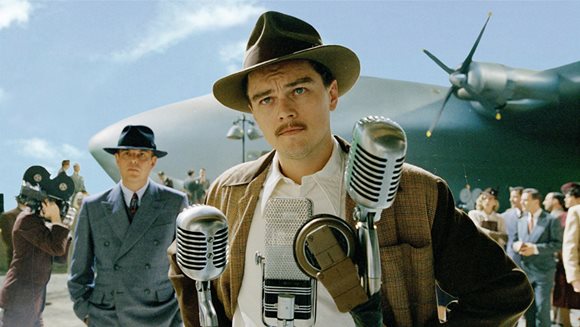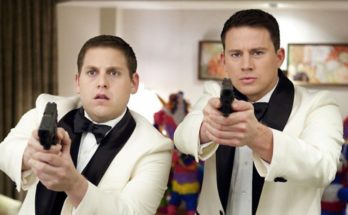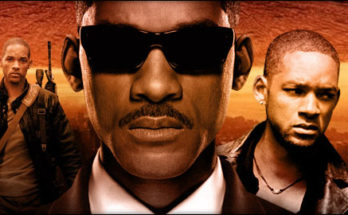Nominated for 6 Golden Globes and 11 Academy Awards, including Best Picture, The Aviator wows audiences with its breadth of scenery and vivid realism. Director Martin Scorsese, known for a host of excellent films such as Raging Bull (1980), Goodfellas (1990), Casino (1995), and Gangs Of New York (2002) – not to mention the highly controversial The Last Temptation Of Christ (1988) – by no doubt turns out his best work since Tommy DeVito (Joe Pesci) sought to become a made man. The Aviator springs to life with nostalgic settings and a lavish tapestry of color and form, evoking all the enthusiasm indicative of Howard Hughes’ unique lust for life. John Logan, known for such films as The Last Samurai (2003) and Gladiator (2000), presents a screenplay that provides some insight into the enigmatic Hughes and captures the mannerisms of those who shared that life with him. In short, the film is a masterpiece of visual imagery and first-rate cinematography few movie lovers can afford to miss…
The Aviator focuses on the early life (1930-1947) of America’s most eccentric and bewildering billionaire playboy, Howard Hughes. Know for his seemingly erratic business dealings and fearless sense of adventure, Hughes (Leonardo DiCaprio) turned a small inherited fortune into an enormous corporate empire. And along the way, he captured the imagination of those around him with an attitude that embraced risk and life itself. Inheriting a majority interest in the Hughes Tool Company (founded by his father), Hughes embarks on a career in Hollywood where he produces a number of notable films including Hell’s Angels, The Front Page, and Scarface. Hughes’ obsessive dedication to perfection makes his stock rise in Hollywood and even helps launch the career of Jean Harlow…
But Howard Hughes is not just a one-trick pony, and his interest soon turns to the flourishing aviation industry where he becomes an integral part of TWA and pilots his own planes on a regular basis. His driving energy would lead Hughes to enter the defense industry, the electronics industry, Las Vegas casinos, and numerous other activities in the years ahead. But along the way, he deals with a cast of characters colorful in their own right. Romances with Ava Gardner (Kate Beckinsale) and Katherine Hepburn (Cate Blanchett) provide insight into Hughes’ personal life, while Noah Dietrich (John C. Reilly), Hughes’ assistant and right-hand man, sacrifices much in his own life to enable Hughes to live out his latest visions and inspirations. When Hughes makes the bold move of constructing the Spruce Goose – the largest airplane ever built (and able to land on water no less) – Senator Ralph Owen Brewster (Alan Alda) accuses the billionaire of war-profiteering. Hughes takes on the Senator full-force and with all the zest that marked his previous ventures. Vowing that the Spruce Goose will fly, in the face of highly publicized claims that it will not, Hughes proves his critics wrong, and the Spruce Goose rises to the occasion…
Despite its loss to Million Dollar Baby at the Oscars, The Aviator can take pride in being nominated as one of the best films of the year (along with Finding Neverland, Ray, and Sideways). And the film is certainly deserving of that high honor. Few films better illustrate the beauty of America, or more importantly, the mountains that can be moved when a single individual lives his life with ambition, drive, inspiration, and a naked enthusiasm for all that life has to offer. Overall, The Aviator is among the best films of the past several years, and movie aficionados would be well-advised to watch every last minute with same enthusiasm of a young Howard Hughes.



